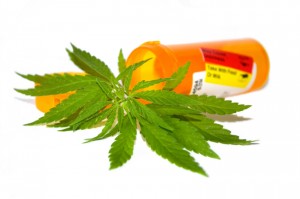 David Casseret, a Georgetown physician and professor, recently had his new book, Stoned: A Doctor’s Case for Medical Marijuana, reviewed in the Washington Post.
David Casseret, a Georgetown physician and professor, recently had his new book, Stoned: A Doctor’s Case for Medical Marijuana, reviewed in the Washington Post.
Here’s where current research suggests a role for marijuana in relieving symptoms:
- Insomnia
- Nausea
- Select types of pain
- Muscle spasms
Curious: These are the same reasons cited by many drinkers for turning to alcohol.
It’s less clear that cannabis is of much value in reducing the sort of crippling anxiety experienced by some PTSD patients. That got my attention because in our state, PTSD is the diagnosis used to justify a prescription for medical cannabis.
Factors that materially impact an individual’s response include the nature and severity of the symptoms to be treated; the physiology of the individual; the method of ingestion. That’s true for any psychoactive medication, of course, prescribed or otherwise.
As the review makes plain, there are also a number of risks associated with cannabis use. Adverse effects on driving performance. The risk of dependence– the withdrawal syndrome associated with cannabis smoking includes anxiety, insomnia, nausea, loss of appetite, depression, a recurrence of physical pain… Gee, this sounds familiar. Sounds to me like you could develop a physical and psychological dependence on medical cannabis, just as you might on the illegal variety.
As with alcoholism, some users are more at risk for dependence than others. Genetics are involved, plus the dose and frequency of use, and method of administration. Plus cannabis appears to be much more potent than it was back in the 70s. Five to ten times higher concentrations of THC, with chemists who devote much of their time to further increasing the THC content. That should result in a greater percentage of users who develop a dependence.
And more potent THC makes it a nice fit into a polydrug pattern– a way of medicating the symptoms of alcohol or heroin withdrawal, for instance. We see that now, and should expect to see more. That’s an issue. Medical cannabis patients are going to arrive in addiction treatment and expect to continue daily use of cannabis. Some of them– given their drug use histories, perhaps most of them– will be physically dependent on the drug. The medical justification (PTSD?) may not carry much weight with other group members who are seeking to be drug-free. It certainly hasn’t in the case of opioid maintenance. It’s one thing to urge therapists to accept the presence of patients on medical pot, and quite another to expect peers to do the same. They’re not always willing to cooperate.
Could we see the appearance of specialty groups or even programs for patients who are attempting to give up opioids or sedatives or stimulants while being maintained on cannabis? It’s possible.
Working clinicians will need to decide how best to deal with it. I predict heated debate.










